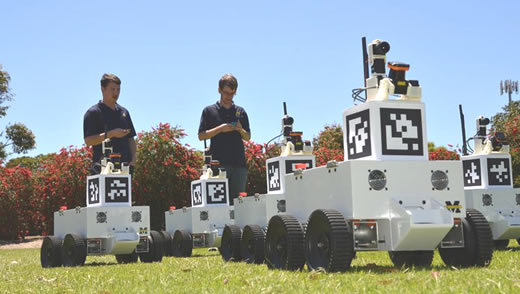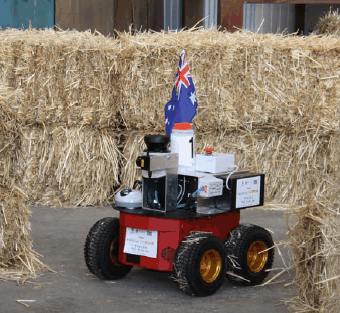| Multi-vehicle robot competition results |
| Sunday, 21 November 2010 | |||
|
A team from the University of Michigan won the inaugural Multi Autonomous Ground-robotic International Challenge (MAGIC 2010) held this month in Brisbane Australia.
Jointly sponsored by the Australian and U.S. Departments of Defense, MAGIC 2010 aimed to attract innovative proposals from worldwide research organizations to develop next-generation fully autonomous ground vehicle systems that can be deployed effectively in military operations and civilian emergency situations. The challenge required competitors to submit proposals in the form of small robot models demonstrating the use of multi-vehicle robotic teams that can execute an intelligence, surveillance and reconnaissance mission in a dynamic urban environment. And it all looks like far too much fun...
Five teams, three from the US, one from Australia and one from Turkey went through to the final round of the competition which involved navigating a 250,000 square-meter indoor and outdoor course. Teams were judged on a number of factors including the maps they produced and the time they took to complete three increasingly complex challenge phases. The winning team was from the University of Michigan using a squad of fourteen robots. Second place went to a team from the University of Pennsylvania which went on to win a separate challenge competition to map a large shed filled with hay mazes and miscellaneous objects.
|
|||
| Last Updated ( Sunday, 21 November 2010 ) |


